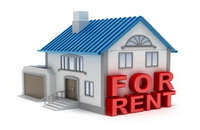Advertisement
Study Finds Owning a Home After Three Years More Beneficial Than Renting

For most buyers who intend to live in a home for at least three years, buying is a better financial decision than renting, according to a new analysis by Zillow. Zillow analyzed the "breakeven horizon" in more than 200 metropolitan areas and 7,500 U.S. cities to determine how many years it would take before owning a home becomes more financially advantageous than renting the same home. In more than 75 percent of the metro markets analyzed, a homeowner would break even after three years or less of owning a home.
All possible costs associated with buying and renting were incorporated into the analysis, including downpayment, mortgage and rental payments, transaction costs, property taxes, utilities, maintenance costs, tax deductions and opportunity costs, while adjusting for inflation and forecasted home value and rental price appreciation.
In some metro areas where home values fell dramatically during the housing recession, homebuyers break even after less than two years of owning a home. The Miami-Ft. Lauderdale metro is among the most favorable for buying, with homeowners breaking even after only 1.6 years of living in the home. However, in the San Jose metro, where home values are among the highest in the nation, a buyer must commit to living in their home for 8.3 years before they will break even.
However, within metros, there is often a sizeable variance from one community to the next. For example, in Mill Valley, Calif., just north of San Francisco, a homeowner can break even after 8.8 years, while in similarly-priced Menlo Park, south of the city, they must live in the home for 14.1 years.
"Across most of the country, historic levels of affordability make buying a home a better decision than ever, especially considering rents have risen more than five percent over the past year," said Stan Humphries, Zillow chief economist. "This is the first analysis of metros and cities that presents the buy versus rent decision in an intuitive way, by telling consumers how long they must live in the home before buying breaks even with renting financially. It's much more understandable, and therefore useful, than the abstract notion of a simple ratio of prices to rents. If we want consumers to act on market information, we have to align it with how they think about the issue and make it straight-forward to grasp."
Metros where it takes more than five years to reach the breakeven point accounted for seven percent of the 224 metros covered by the report. The metros with the longest breakeven horizons are San Jose, Calif. (8.3 years); Oak Harbor, Wash. (7.2 years); Santa Cruz, Calif. (7.1 years); San Luis Obispo, Calif. (6.3 years) and Salinas, Calif. (6.3 years). The metros with the shortest breakeven horizon are Memphis, Tenn.; Miami-Ft. Lauderdale, Fla.; Salisbury, Md.; Red Bluff, Calif.; Mobile, Ala.; Tampa, Fla. and Fernley, Nev. (all tied at 1.6 years).
About the author




